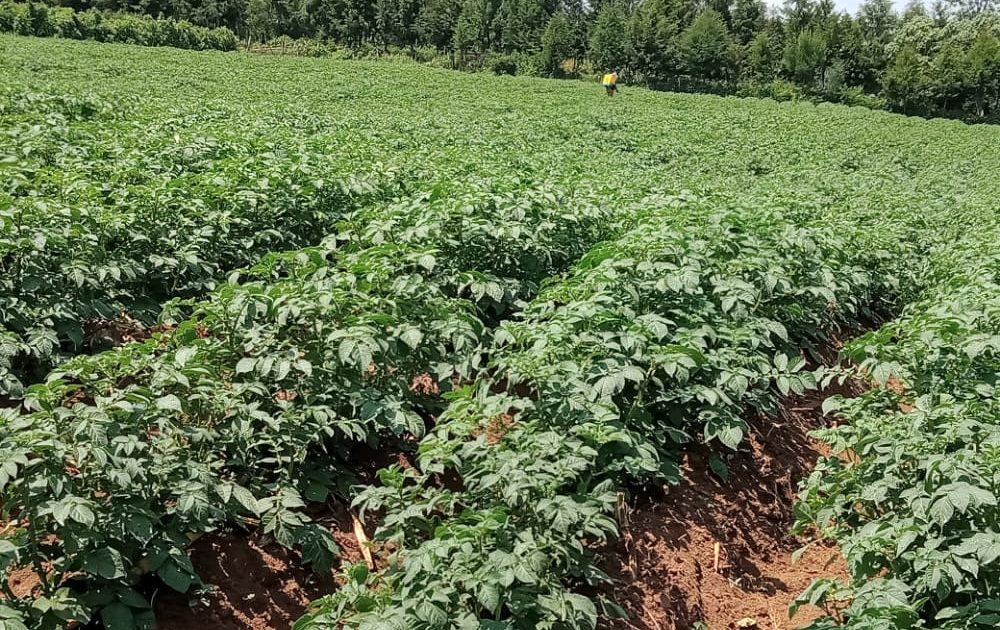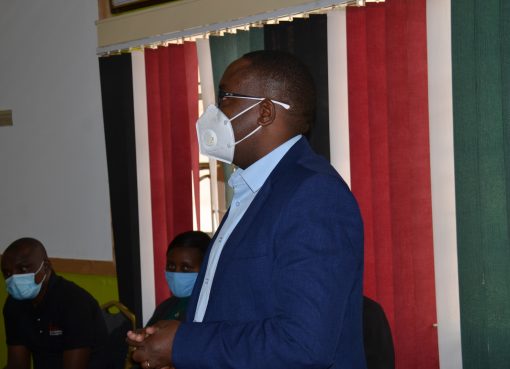Maize and wheat farming has for a long time been synonymous with Uasin Gishu, one of the counties regarded as the country’s breadbasket.
However, a sustained campaign by the county government to prevail upon farmers to diversify crops to increase their economic income amidst maize and wheat market challenges has motivated farmers in the county to venture into high value crops including potato farming.
The production and consumption of potatoes in the county has steadily grown as more farmers embrace diversification to improve on food security and expand their source of income as the county’s traditional cash crop have been affected due to poor rain, poor germination and army warm infestation.
“Since potatoes can be grown twice in a season compared to maize which is only grown once, the returns for potatoes are high and that is why there is a shift from maize to potato farming,” notes County Crops Officer Joash Wafula.
“One acre of land when you grow maize you harvest approximately twenty 90 kilogramme bags while potatoes you will produce up to six hundred 50 kilogram bags per year, therefore in terms of yield it is high and assures you of supply of cash and food,” he added.
Potato farming in Uasin Gishu on large scale is popular in sub-counties such as Ainabkoi, Kesses and Moiben and in the rest of the sub counties, it done on small scale, said the Crops Officer during an interview with KNA in his Eldoret office.
Kenya Agricultural and Livestock Research Organisation (KALRO) has made efforts to supply certified seeds and expand farmers’ access to quality seeds of improved potato varieties which is essential to boosting yields and earnings.
Wafula said that the county was in the process of constructing a warehouses to help farmers have a storage facility for their potatoes.
Currently, they have done one storage facility in Ainabkoi with a capacity of storing 50 tonnes that was donated by the Netherlands government where farmers could store their potatoes for between three and four months, he said.
The nature of potato farming and production is such that people from all walks of life including the youth could farm.
James Soy, a farmer from Ainabkoi area, a well-known maize farmer, has now become a key player in the potato sector.
Soy says potato farming was gaining ground as the demand for potatoes is growing due to rapid urbanization and the good price the crop fetches.
“There is an increasing appeal for fast foods like crisps and chips therefore I’m able to sell them to fast food joints and hotels within Eldoret town,” said Soy.
“I noticed that farmers are buying ordinary potato tubers from local farmers which are not suitable for planting resulting in poor yields. I advise farmers to look out for the sticker labels before buying seeds so as to ensure farmers buy certified seeds,” he added.
“Potato crops are prone to attacks by various pests and diseases, so proper measures should be taken and pesticides should be incorporated to increase yields. Soil testing always pays and since they help the farmers get the right nutrient balance,” explained Soy.
The market prices vary depending on size, maturity, variety and physical appearances, among other factors, says Soy.
“Farmers can optimise their potato production through good farming management practices to meet the increasing demand both locally and in the international market,” he says.
By Judy Too and Kiptanui Cherono




